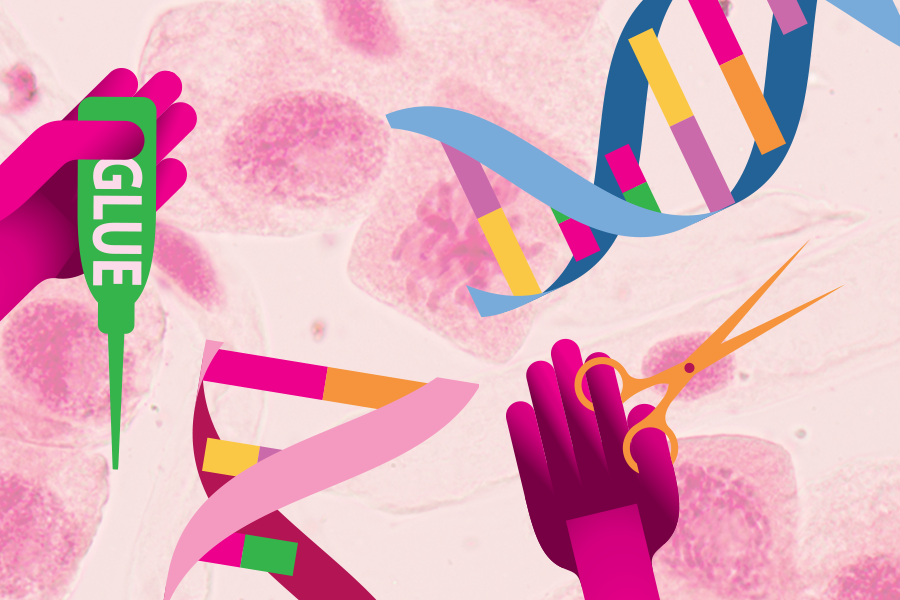Genetic Testing and Breast Cancer Prevention

Since launching a high-risk breast cancer clinic within Drexel University College of Medicine’s Breast Health & Wellness Center, Amanda Woodworth, MD, has been delivering a lot of surprising news to patients. But it’s probably not the kind you’re thinking.
“If you have a strong family history of breast cancer, your chances of not having a genetic mutation are much higher than your chances of having it,” says breast surgeon Dr. Woodworth, director of the center. “So, often, I’m able to tell my patients the good news that they don’t have a mutation.”
At Drexel’s Breast Health & Wellness Center, women with a high risk of developing breast cancer can receive a custom risk assessment, genetic testing, a review of their past breast imaging and more. Maura O’Connor was one of them. She started getting annual mammograms at 39 after several benign cysts were found in her breasts. That, combined with the fact that she has dense breast tissue, got her wondering about the validity of the previous screenings. At Drexel, she received what Dr. Woodworth calls a “three-degree pedigree,” a screening process that reviews a patient’s family history by up to three degrees of separation. O’Connor was also tested for genetic mutations and was found to have none. According to Dr. Woodworth, the absence of a genetic mutation doesn’t remove all risk, but the presence of one also isn’t a guarantee of developing breast cancer. The true value of genetic testing, she says, is being able to classify her patients, which ensures they’re being screened appropriately at future appointments. Although she didn’t have a genetic mutation, it was determined that O’Connor still runs twice the risk of developing breast cancer as the average woman. Based on that knowledge, she now has an annual breast MRI and regular mammograms.
On the eve of her first MRI, O’Connor was a bit anxious, but far more relieved. “Even though I’m still at a higher risk for breast cancer, I feel comforted knowing we’re being proactive about my screenings,” she says.
Drexel’s Dr. Amanda Woodworth believes in a holistic approach to care when it comes to preventing and treating breast cancer. “The breast is not in a vacuum; it’s part of a whole person,” Dr. Woodworth says. Here are a few recommendations she offers women:
1. Get moving. The nature of the link is still uncertain, but there’s mounting evidence that shows sticking to a regular, moderately intense exercise routine (four to five hours a week) lowers your breast cancer risk.
2. Eat mindfully. A new study suggests that women who ate more than five-and-a-half servings of fruits and veggies a day reduced their risk of developing breast cancer by 11 percent. Another study showed that those who eat a lot of ultra-processed food increased their cancer risk.
3. Decompress. While there’s no proven connection between stress and breast cancer risk, finding a calming outlet like yoga or mindful meditation may help make treatments more effective.
This article is provided for general information only and should not be used for diagnosis or treatment, or as a substitute for consultation with a physician or healthcare professional. If you have specific questions or concerns about your health, you should consult your healthcare professional. For more information, visit drexelmedicine.org.
This is a paid partnership between Think Pink and Philadelphia Magazine


